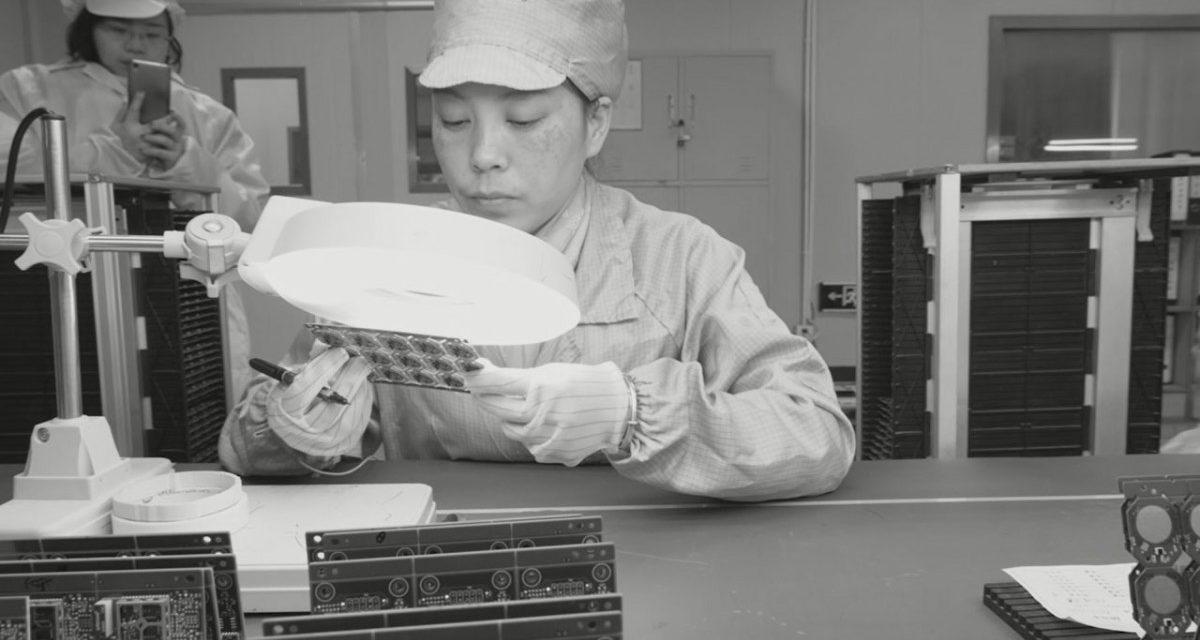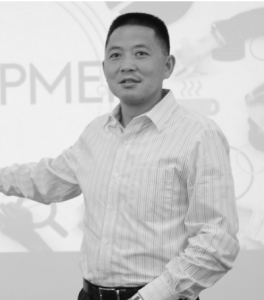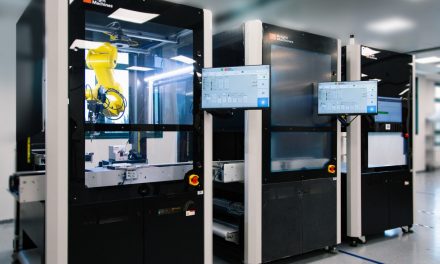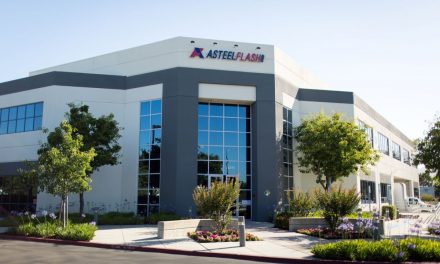EMSNOW Executive Interview: Ryder Industries’ CEO Henry Wu

RyderEMS is an interesting company that we at EMSNOW have been following for over a decade. The company was founded by a Swiss physicist, Eric Winkler, but its facilities are based in China, benefiting from the scale and efficiencies of that country’s impressive supply chain. Within its two large, versatile facilities, one on the coast and the other inland, Ryder Industries aims to put together a custom solution for each client, providing scalable, flexible and robust product life-cycle management. We caught up with Henry Wu, the company’s CEO to find out more.
EMSNOW: Ryder began in 1979 as an OEM and sold products under its Saitek brand. What motivated the change to an EMS business, and what elements of your OEM history does the company maintain today?
Saitek, along with most product companies, experienced significant seasonal variations in demand. Seeing machines idle during downtimes is frustrating. The mid-1990s saw the emergence of the EMS model, and it offered an exciting opportunity, and crucially, a way to utilize the spare capacity. The EMS division grew quickly, and Ryder made the decision to zero in on it. To succeed as an EMS, everything has to centre on your customer; maintaining your own product line presents the potential for conflicts, such as IP, or the allocation of resources. Ryder took decisive action to eliminate this complexity, becoming a pure EMS in 2007. One element of Ryder’s OEM history that remains is a deep understanding of what it takes to bring a concept to life, and what a privilege it is to be entrusted with this task.
EMSNOW: Your tagline ‘Swiss precision: Chinese Scale’ seems to position the Swiss part of Ryder’s DNA as a key differentiator from other EMS companies – is that the point that you are making?
Certainly! The Swiss influence that our founder and Chairman, Eric Winkler, brings to Ryder is a decisive differentiator. However our tagline is every bit as much about the advantages that the Chinese culture and geography brings to the mix; it’s about two strong and successful cultures complimenting one another, and creating something special.
EMSNOW: That’s interesting – can you tell me about what specifically it is about the Swiss culture that you see as adding value to Ryder?
Well – everyone knows the reputation of the Swiss watchmaking industry – ‘Swiss made’ is the highest accolade possible, so much so that its use is strictly regulated. It denotes a meticulous attention to detail, innovation, precision, and skill. These are all attributes that in our industry are crucial; but the Swiss influence does not stop there! What else springs to mind when we think of the Swiss? For me, it is banking. The Swiss are renowned in this area for many reasons – but the most relevant to Ryder are stability and an absolute respect for their customers’ privacy. Stability, which seems to be baked into the Swiss nature, is an obvious benefit for Ryder customers: as a wholly owned company, we are resilient – our longevity proves this, we celebrate our 40th anniversary this month. Respect for privacy also informs everything we do at Ryder – our customers’ Intellectual Property is precious, and we prioritize its protection above all else.
EMSNOW: If Ryder is a mix of the two cultures – what is it about the Chinese culture makes the difference for your customers?
As a nation, the Chinese have a determination to excel, but know that it requires discipline. Interestingly, discipline is something that the Swiss and the Chinese have in common. Of course China is home to the earliest example of a meritocracy; you could say that for China, success has always depended on hard work – oh, and intelligence, the development of prized skills, and the ability to innovate… When you couple this ethos with the ability to deliver on a vast scale, with all of China’s geographical advantages, you are onto a winner.
Ryder has strategically placed itself to make the most of those advantages: our Coastal plant is in world-class Shenzhen, a global centre of engineering skills and innovation. Shenzhen has the most diverse and cost effective supply chain network in the world. There, we have 1,200 people; this tends to be where we focus on product development and early-stage production. At our Inland plant, our customers benefit from significant cost advantages and a larger regional labour pool, this lends itself to scalability.
EMSNOW: With all the talk about IP protection, how does Ryder EMS reassure customers that it will isolate and protect engineering designs?
This is such an important part of business: our customers’ IP is sacrosanct. I believe this is a case in point where what really makes the difference are our values – specifically our integrity. Of course, Ryder has strict in-house engineering documentation management and encryption, and tracking processes in place – we have put a lot of thought and effort into them. As important as these are however, without the right company culture and mindset, these controls count for very little. Ryder’s history as an OEM also differentiates it from many of its competitors; a meaningful understanding of the precious nature of IP is embedded in Ryder’s culture. But, even if you were to strip that history away, it would not matter – the decisive factor is integrity.
EMSNOW: Ryder’s current global manufacturing footprint is focused in China. Do you anticipate that changing as your business grows, and if so what other regions might be targeted and why?
It has been clear for a long time that the trend toward manufacturing migration would gather pace. Expanding our global manufacturing footprint is part of Ryder’s long term plan. We believe ASEAN, India and Africa are likely beneficiaries of this development. For the time being though, the unrivalled advantages of being exactly where we are far outweigh any disadvantages.
EMSNOW: What do you see as the EMS industry’s core strengths?
Product manufacturing will always be needed. The fact is, in the vast majority of cases, EMS is more efficient, more reliable and more flexible than OEMs using their own factories.
EMSNOW: How are you embracing industry initiatives like Industry 4.0, CFX and additive manufacturing?
Manufacturing technology is critically important for the EMS industry, not only for productivity, but also sustainability. Ryder has a dedicated team leading in-house Operations Excellence and manufacturing automation and is charging ahead. Additive manufacturing has yet to mature to suit our volumes.
EMSNOW: What do you see as the primary challenges to the profitability of the EMS industry in the next three to five years?
The US-China trade dispute, and its effect on the supply chain, will be the primary challenge to EMS profitability.
EMSNOW: Is there anything else you would like to share with EMSNOW readers?
We at Ryder are in an optimistic and reflective mood, looking forward to marking our 40th anniversary, and planning for another 40 years of success. There is no ignoring the fact that the times we are living through present many challenges, however they are certainly interesting, and I think someone wise once said that this is a good thing! Necessity is the mother of invention – and if there was ever an industry reliant on the inventiveness of humans – it is EMS.













